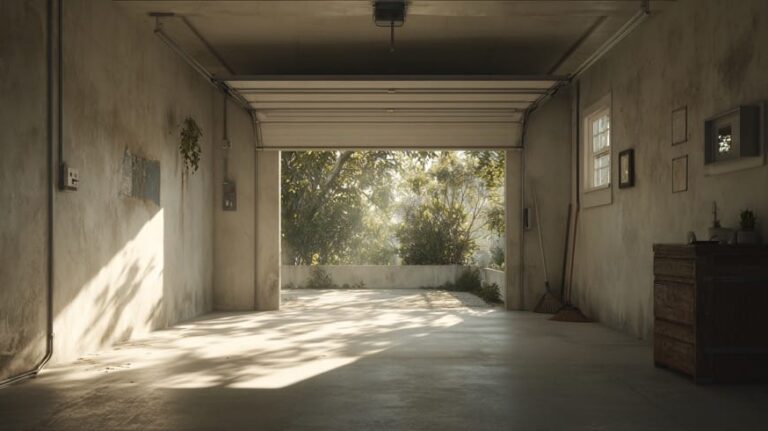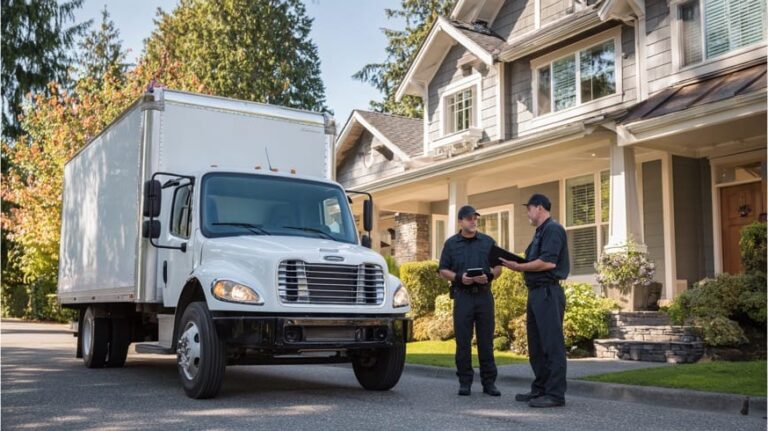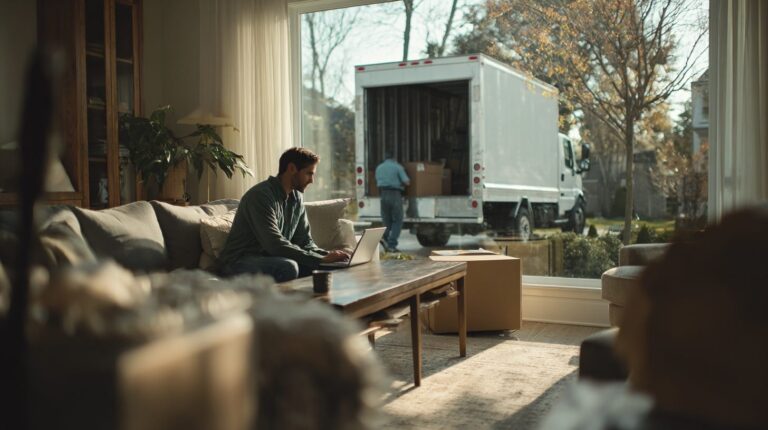When you’re on a tight schedule and juggling permits, subs, and materials, the last thing you want to worry about is what happens to all that leftover debris. But here’s the deal—construction junk removal isn’t just about cleaning up. It’s about staying compliant, protecting your crew, saving money, and keeping your job sites running smoothly.
In this guide, we’ll break down exactly what contractors and construction professionals need to know about managing debris—smartly, legally, and cost-effectively. Whether you’re building a single home or managing multiple sites, these contractor debris solutions can help you work cleaner, safer, and more efficiently.
Types of Construction Debris and Waste Materials
Let’s start with the basics. What exactly counts as “construction debris”? You might be surprised how many different types of materials need different handling.
1. Common Jobsite Waste
- Wood & Lumber: Framing scraps, pallets, plywood
- Drywall & Plaster: Broken sheets, leftover compound
- Concrete & Asphalt: Demoed driveways, sidewalks, and slabs
- Roofing Materials: Shingles, tar paper, flashing
- Metal Scraps: Copper piping, steel, aluminum siding
- Glass & Windows: Broken panes, unused frames
- Packaging Waste: Cardboard, plastic wrap, foam
- Hazardous Waste: Paint, solvents, adhesives
Each type requires different disposal methods—some can be recycled, some need to go to specific facilities, and others must be handled as hazardous waste. Misclassify any of it, and you could be looking at a fine or worse.
Legal and Environmental Regulations Contractors Must Follow
There’s no getting around it—construction junk removal is regulated. Depending on your state or municipality, rules can vary, but most areas follow the EPA’s Construction and Demolition Debris guidelines.
Here’s what you need to keep in mind:
- Permits: Some cities require permits for large roll-off dumpsters or to dispose of certain waste.
- Disposal Records: You may be required to track and report where debris was taken.
- Hazardous Material Handling: Lead paint, asbestos, and certain chemicals can’t be tossed in a regular bin.
- Fines for Illegal Dumping: It’s not worth the shortcut—fines can range from hundreds to thousands of dollars.
Being aware of local ordinances—and working with a debris disposal provider who knows them—keeps you legal and avoids project delays.
Cost-Effective Contractor Debris Solutions
Disposal is often an afterthought—but it shouldn’t be. If you’re not planning for it, you’re probably overpaying or causing project slowdowns.
Two Main Options:
- Handle It In-House: You rent the dumpster, schedule the hauls, sort materials, and ensure compliance. It can work, but it takes time, labor, and know-how.
- Hire a Construction Junk Removal Service: A licensed company handles everything—pickup, sorting, hauling, and proper disposal. It’s a great option for time-strapped contractors or jobs with limited manpower.
Pricing Structures to Expect:
- Flat-Rate: Great for predictable volume
- Per Ton/Per Yard: Based on weight or space used (ours is volume based)
- Hourly Labor + Disposal: Ideal for custom jobs or hand-loading situations
The smartest move? Include debris disposal in your job bid. It shows clients you’re organized and protects your profit margins.
On-Site Debris Management Best Practices
Managing debris as you go keeps your site safer and makes cleanup at the end way easier.
Best Practices Include:
- Use Clearly Marked Bins: Separate recyclable from general waste
- Keep a Debris Staging Area: Away from workflow zones but easy to access
- Daily Site Walkthroughs: Identify build-up before it becomes a problem
- Schedule Pickups in Advance: Avoid delays due to overflowing dumpsters
Clients notice clean sites. It communicates professionalism, reduces hazards, and helps avoid costly OSHA violations.
Recycling and Sustainability in Construction Waste
More clients today are asking about green building practices—and smart debris management is part of the answer.
Materials You Can Often Recycle:
- Concrete and asphalt (for road base)
- Clean wood (for mulch or biomass fuel)
- Metal scraps (aluminum, steel, copper)
- Cardboard and paper packaging
Working with a construction junk removal company that offers recycling is a huge bonus. Some can provide diversion reports for your LEED certifications or other environmental initiatives.
Beyond regulation, recycling helps reduce landfill fees and positions your company as environmentally conscious—something more commercial clients value.
Choosing the Right Construction Junk Removal Partner
Picking the right crew to handle your debris can make or break your schedule.
What to Look for:
- Licensed & Insured: Always check credentials
- Experience with Contractors: They’ll understand timelines and site access issues
- Same-Day or Next-Day Pickup: Keeps you moving
- Transparent Pricing: No surprises at the end (we offer instant online pricing)
- Custom Debris Solutions: Not all jobs fit a one-size-fits-all model
The right partner will save you time, help you stay compliant, and make your project management easier.
Dumpster Rental vs. Full-Service Debris Removal
You’ve got choices when it comes to how debris gets off your site. Here’s a quick comparison:
| Feature | Dumpster Rental | Full-Service Removal |
|---|---|---|
| Labor Provided | No | Yes |
| Scheduling Flexibility | Moderate | High |
| Ideal For | Long-term builds | Quick jobs, remodels |
| Site Impact | Requires space for container | Can work in tighter areas |
| Cleanup Level | Self-managed | Fully handled |
For smaller jobs, a dumpster might do the trick. But if you’re running multiple jobs or working in tight urban spaces, full-service contractor debris solutions are often the better choice.
How Technology is Changing Debris Disposal
Contractors are adopting software tools for everything from scheduling to materials ordering—why not junk removal?
Here’s What’s New:
- Booking Apps: Schedule pickups from your phone (or right here!)
- Live Tracking: Know when your debris has been picked up
- Automated Invoicing: Easy expense reporting for your accountant
- Compliance Logs: For legal or LEED documentation
Working with tech-savvy junk removal providers adds efficiency and accountability to your workflow.
Final Thoughts: Build Better with Smarter Debris Management
Construction debris disposal doesn’t have to be a headache. With a little planning, the right partners, and smart on-site practices, you can keep your job sites cleaner, safer, and more cost-effective.
From recycling construction waste to booking same-day pickups, great contractor debris solutions help you stay focused on what you do best—building.
Ready to Clean Up Smarter?
Book a Pickup Today.
Don’t let debris slow you down. Whether you’re tackling a big demo or wrapping up a renovation, our construction junk removal team is ready to help. Fast service, fair pricing, and contractor-focused solutions—so you can get back to building.





